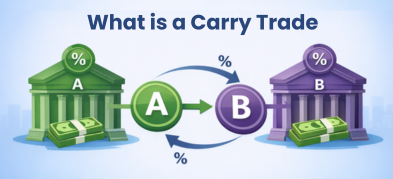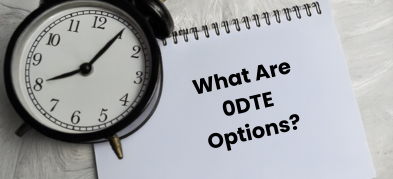
Ultima Markets App
Trade Anytime, Anywhere
Important Information
This website is managed by Ultima Markets’ international entities, and it’s important to emphasise that they are not subject to regulation by the FCA in the UK. Therefore, you must understand that you will not have the FCA’s protection when investing through this website – for example:
- You will not be guaranteed Negative Balance Protection
- You will not be protected by FCA’s leverage restrictions
- You will not have the right to settle disputes via the Financial Ombudsman Service (FOS)
- You will not be protected by Financial Services Compensation Scheme (FSCS)
- Any monies deposited will not be afforded the protection required under the FCA Client Assets Sourcebook. The level of protection for your funds will be determined by the regulations of the relevant local regulator.
Note: Ultima Markets is currently developing a dedicated website for UK clients and expects to onboard UK clients under FCA regulations in 2026.
If you would like to proceed and visit this website, you acknowledge and confirm the following:
- 1.The website is owned by Ultima Markets’ international entities and not by Ultima Markets UK Ltd, which is regulated by the FCA.
- 2.Ultima Markets Limited, or any of the Ultima Markets international entities, are neither based in the UK nor licensed by the FCA.
- 3.You are accessing the website at your own initiative and have not been solicited by Ultima Markets Limited in any way.
- 4.Investing through this website does not grant you the protections provided by the FCA.
- 5.Should you choose to invest through this website or with any of the international Ultima Markets entities, you will be subject to the rules and regulations of the relevant international regulatory authorities, not the FCA.
Ultima Markets wants to make it clear that we are duly licensed and authorised to offer the services and financial derivative products listed on our website. Individuals accessing this website and registering a trading account do so entirely of their own volition and without prior solicitation.
By confirming your decision to proceed with entering the website, you hereby affirm that this decision was solely initiated by you, and no solicitation has been made by any Ultima Markets entity.
I confirm my intention to proceed and enter this website Please direct me to the website operated by Ultima Markets , regulated by the FCA in the United KingdomWhat Currency Does England Use?
England uses the British Pound Sterling (GBP) as its official currency. Known simply as the pound, it is one of the world’s oldest and most traded currencies.
While people often refer to it as the “British pound,” the full name “pound sterling” distinguishes it from other currencies also called pounds, such as the Egyptian or Sudanese pound.
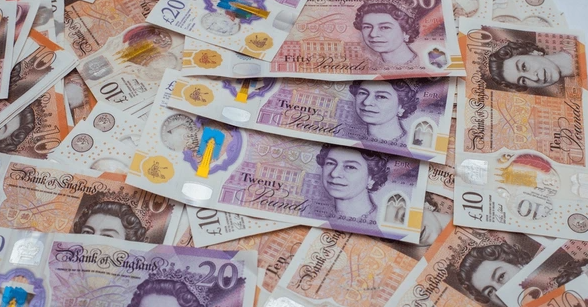
The official name of British money is the Pound Sterling, denoted by the symbol £ and the currency code GBP. It is issued by the Bank of England, the UK’s central bank, and subdivided into 100 pence (p).
What Does British Money Look Like?
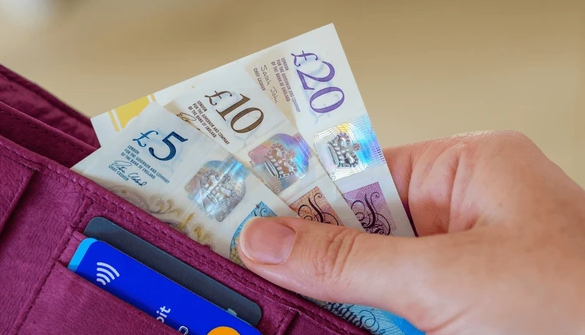
British banknotes and coins vary in design, with newer polymer notes showcasing enhanced security features. Here’s what they typically include:
Notes:
- £5, £10, £20, £50 denominations
- Feature famous British figures like Winston Churchill, Jane Austen, JMW Turner, and Alan Turing
- Polymer material to reduce counterfeiting and improve durability
Coins:
- Denominations from 1p to £2
- Feature symbols representing UK nations (England, Scotland, Wales, Northern Ireland)
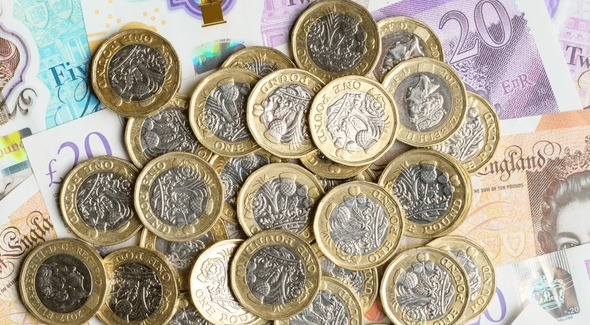
Each design is issued by the Bank of England for use in England and Wales. In Scotland and Northern Ireland, other banks may issue different designs though the currency remains GBP.
The British Pound Sterling Historical
The pound sterling dates back over 1,200 years, making it the oldest currency still in use today. It originated from a weight of silver and has evolved alongside British economic and political history. Key milestones:
- 1694: Bank of England established, gaining note-issuing power
- 1821: UK adopts the gold standard
- 1931: Gold standard abandoned
- 1971: Decimalization switch from old pence (240 per pound) to 100 pence system
This historical depth adds to the pound’s credibility in global trade and forex.
Pound vs USD: A Key Forex Pair
The GBP/USD currency pair, often called “Cable” in trading, is among the most liquid forex pairs globally. Its movements are influenced by:
- Monetary policy: Bank of England vs Federal Reserve rate decisions
- Economic indicators: Inflation, GDP, unemployment
- Geopolitical stability: Brexit, UK elections, US fiscal policy
Current Snapshot (as of July 2025):
- GBP/USD rate: ≈ 1.28
- Volatility: Medium-high, due to diverging economic paths post-Brexit
- Spread: Often tight in major forex platforms (~1–2 pips)
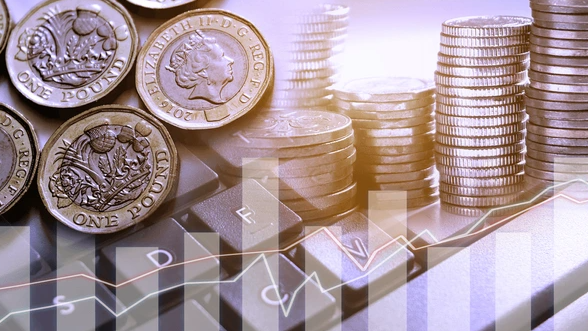
Can the British Pound Be Stronger Than the US Dollar?
Yes, the British pound can be stronger than the US dollar and often is, in nominal terms.
The British pound (GBP) has historically been stronger than the US dollar (USD) in terms of nominal exchange rate — meaning £1 is typically worth more than $1. For example:
| Year | GBP/USD Rate | Meaning |
| 2007 | 2.11 | £1 = $2.11 (peak strength) |
| 2014 | 1.70 | £1 = $1.70 |
| 2023 | 1.30 | £1 = $1.30 |
| 2025 (est.) | 1.28 | £1 = $1.28 |
But when and why does the pound gain strength relative to the dollar?
Interest Rate Differentials
When the Bank of England (BoE) raises interest rates faster or higher than the Federal Reserve (Fed), the pound often strengthens.
Why? Higher rates = more yield for investors = capital inflows into the UK = demand for GBP rises.
Example:
In 2006–2007, the BoE had rates at 5.75%, while the Fed held at 5.25%. GBP/USD rose above 2.10, reflecting this differential.
Positive UK Economic Outlook
Strong UK economic data (GDP growth, low unemployment, rising inflation) boosts confidence in the pound.
Why? Traders and institutions anticipate tighter monetary policy and more investment in the UK economy.
Example:
In early 2014, the UK economy recovered faster post-financial crisis than the Eurozone, pushing GBP/USD to 1.70.
Weak US Dollar Environment
Even if the UK economy isn’t booming, the pound can rise if the USD weakens globally often due to:
- Fed rate cuts or dovish stance
- High US debt or fiscal uncertainty
- Risk-on market sentiment reducing demand for USD as a safe haven
Example:
In 2020–2021, the Fed’s aggressive QE and stimulus weakened USD across the board. GBP/USD climbed from 1.15 (Mar 2020) to 1.42 (Jun 2021).
Reduced Brexit Risk or Political Stability
GBP is highly sensitive to UK political risk. When uncertainty decreases (e.g., Brexit deals, stable governments), GBP tends to strengthen.
Example:
After the UK-EU Brexit deal in Dec 2020, investor confidence returned, helping GBP/USD recover.
Safe-Haven Rotation
Sometimes investors shift out of USD into other major currencies like GBP, especially when:
- The US faces financial uncertainty (e.g., debt ceiling risks)
- Global investors diversify reserve holdings
Though rare, this can support GBP strength even if UK fundamentals are neutral.
Conclusion
The answer to “What currency does England use?” is clear, the British Pound Sterling (GBP). As one of the world’s most traded and historically significant currencies, the pound holds strong value both in everyday transactions and in the global financial system.
Whether you’re comparing the pound vs USD, exploring its historical strength, or analyzing how British monetary policy impacts forex trends, the GBP remains a vital instrument for traders. Its price movement reflects economic data, central bank decisions, and investor sentiment, making it a core focus in any currency portfolio.
At Ultima Markets, we understand how powerful the British pound can be especially in the GBP/USD pair. That’s why we provide traders with real-time market insights. Trade the pound with confidence through Ultima Markets, your trust forex platform.
Disclaimer: This content is provided for informational purposes only and does not constitute, and should not be construed as, financial, investment, or other professional advice. No statement or opinion contained here in should be considered a recommendation by Ultima Markets or the author regarding any specific investment product, strategy, or transaction. Readers are advised not to rely solely on this material when making investment decisions and should seek independent advice where appropriate.




